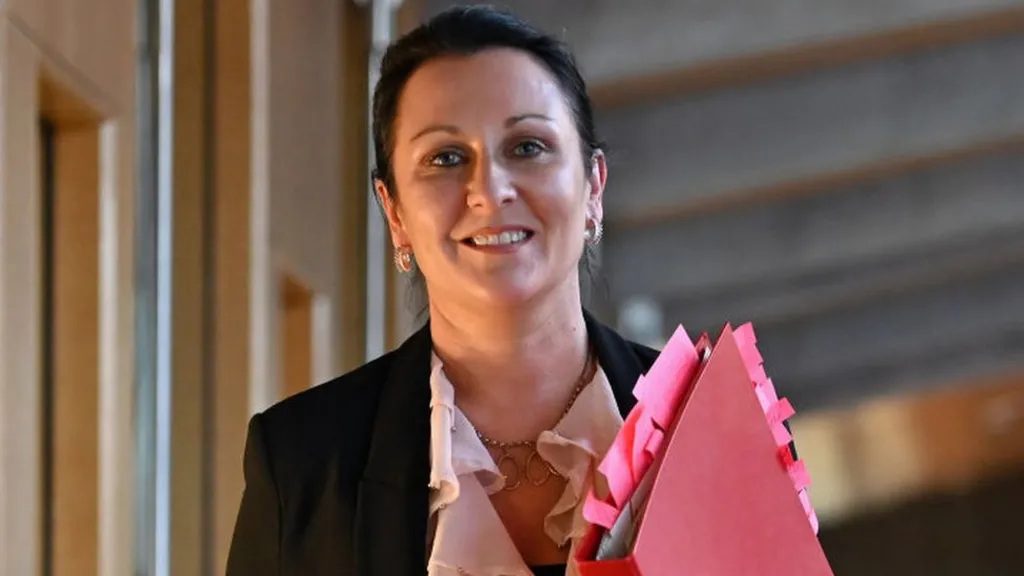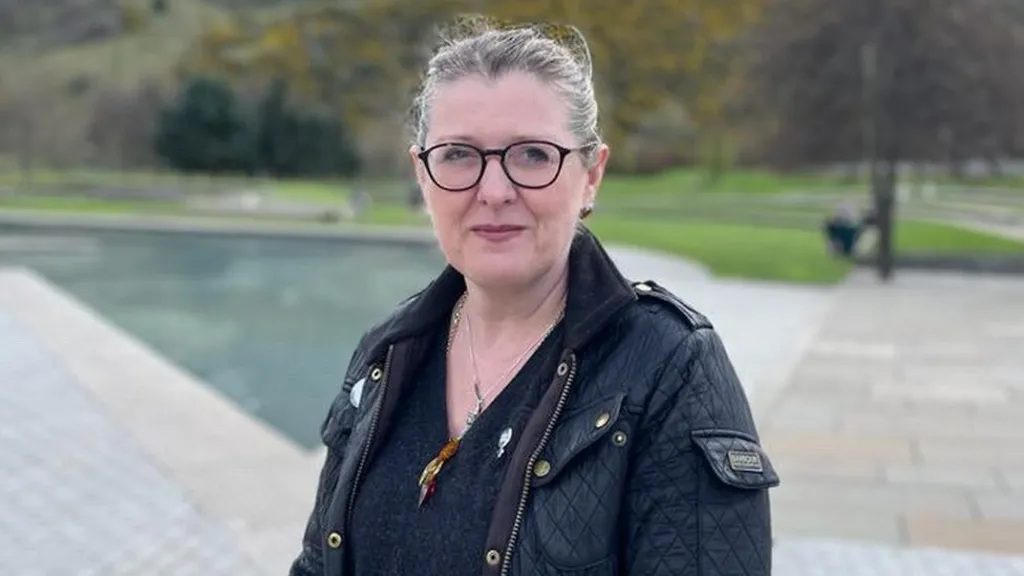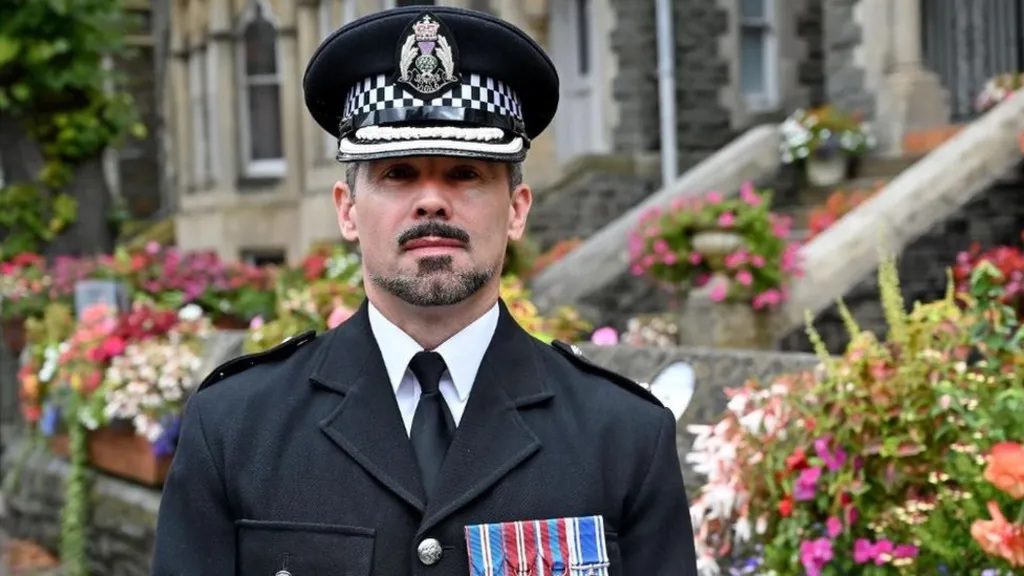Scotland’s new hate crime law comes into force
By James Cook
On April 1, 2024
Scotland’s new hate crime law has come into force, with JK Rowling and Elon Musk among its critics.
The Harry Potter author and the owner of social media platform X both claim the legislation could harm free speech.
Senior police officers say they expect a flood of complaints about online posts.
But the Scottish government insists the law provides protection from hate and prejudice without stifling individual expression.
“I think there has been a lot of misinformation,” about the legislation, said the Victims and Community Safety Minister Siobhian Brown, before going on to claim, inaccurately, that it was “passed unanimously” by MSPs in 2021.
In fact the law was approved by 82 votes to 32 with four abstentions after heated debate about its contents.
The Hate Crime and Public Order (Scotland) Act 2021 creates a new crime of “stirring up hatred” relating to age, disability, religion, sexual orientation, transgender identity or being intersex.
The maximum penalty is a prison sentence of seven years.
A person commits an offence if they communicate material, or behave in a manner, “that a reasonable person would consider to be threatening or abusive,” with the intention of stirring up hatred based on the protected characteristics.
Stirring up hatred based on race, colour, nationality or ethnicity was already illegal in Great Britain under the Public Order Act 1986 but, in an attempt to streamline the criminal law in Scotland, that too is now part of the Hate Crime Act.
The bar for this offence is lower than for the other protected characteristics, as it also includes “insulting” behaviour, and as the prosecution need only prove that stirring up hatred was “likely” rather than “intended”.
In England and Wales stirring up hatred over race, religion or sexual orientation by threatening behaviour remains illegal.
The hate crime law in Scotland includes more protected characteristics.
Free speech protection
Supporters of the new law point out that it contains safeguards designed to protect freedom of speech.
For example, it states that it is a defence for a person charged with stirring up hatred to show that their actions were “reasonable.”
It also references the right to freedom of expression in Article 10 of the European Convention on Human Rights, which includes protection for “ideas that offend, shock or disturb.”
To be convicted of a hate crime, “you have to be really threatening and really abusive, and there has to be reasonable assumption from others that that is the case,” said Ms Brown.

As well as the offence of stirring up hatred, the Hate Crime Act also consolidates the existing law on crimes which are “aggravated by prejudice.”
These are where an offender demonstrates malice or ill-will towards their victim based on a protected characteristic, which can be taken into account by a sheriff or judge with a longer sentence or a higher fine than would otherwise have been the case.
For example, if an assailant punched someone in the face while also making a hateful comment about their age, that might be assault aggravated by age-related hatred.
This is the first time that age has been included in the list of protected characteristics for aggravated offences, a move welcomed by some campaign groups.
“It’s going to be a positive thing for the country,” said Adam Stachura of the charity Age Scotland.
Others are less enthusiastic.

Adam Tomkins, professor of public law at Glasgow University, and a former Conservative MSP, voted against the bill because it could see someone convicted of stirring up hatred for a comment they make in private in their own home, not just in public, “and I just don’t think that’s where the criminal law belongs.”
However, Professor Tomkins said he believed the law only posed a risk to free speech “if it’s misunderstood,” adding, “if it’s properly understood, I think this is a fairly safe piece of legislation now.”
Susan Smith of For Women Scotland, which campaigned against recent proposed changes to gender law, is not convinced.

“The tests are quite woolly and we don’t know how people are going to interpret this,” she told BBC News.
“We do anticipate that there will be a lot of malicious complaints, a lot of rather trivial complaints and potentially people who are investigated will see their lives upended.
“I imagine there will be many complaints, for example, made against JK Rowling,” she added.
Ms Rowling, a prominent critic of some transgender activism, described the law as “ludicrous” in a defiant post on X (formerly Twitter) last month.
Mr Musk has cited discussion about the legislation as an “example of why it is so important to preserve freedom of speech.”
Vic Valentine of the charity Scottish Trans said the organisation supported the law because of the “serious impact that hate crime can have on LGBTI people.”

It would not, Vic added, criminalise behaviour which transgender people might simply find upsetting, offensive or even transphobic.
Police resourcing
The SNP-led Scottish government has tried to soothe concerns.
Siobhian Brown described the act as “ambitious” while also insisting it would “not necessarily” criminalise anything that was not already criminal.
Asked whether “misgendering” someone or making a comment about their religion would be a crime the minister replied: “This will be up to Police Scotland. I wouldn’t say misgendering if you say something on social media for example it would be up to Police Scotland to determine.”
Ch Supt Rob Hay of the Association of Scottish Police Superintendents (ASPS), which represents senior officers, said there was the potential for a “huge uplift” in complaints about social media posts.

Mr Hay said his central concern was that Police Scotland “haven’t been provided with any additional resources in terms of dealing with this piece of legislation.”
Just last month the national force said it was no longer able to investigate every “low level” crime, including some cases of theft and criminal damage.
It has, however, pledged to investigate every hate crime complaint it receives.
BBC News understands that these will be assessed by a “dedicated team” within Police Scotland including “a number of hate crime advisers” to assist officers in determining what, if any, action to take.
At a recent meeting of the Scottish Police Authority board, Chief Constable Jo Farrell said her force would apply the act “in a measured way” under “close scrutiny.”
Debate about the act has also resurrected a long-running row about how police forces throughout Britain record allegations of hate crimes where no charges are brought.
The Conservative MSP Murdo Fraser has been leading a campaign against the recording of what are termed “non-crime hate incidents” after he discovered that Police Scotland had recorded a comment he had made on social media as a hate incident, despite deciding that no crime had been committed.
More generally, the publicity about the new law, and the controversy surrounding it, has prompted warnings that it could lead to self-censorship.
Roddy Dunlop KC, dean of the Faculty of Advocates, said it could have a “chilling effect” on free speech.
And some feminist groups have raised concerns that the absence of sex as a protected characteristic in the legislation leaves women unprotected.
The Scottish government has promised to introduce a separate misogyny law “in due course” following a report by the barrister, Helena Kennedy KC.
This piece was republished from the BBC.